WHEN THE CRIMINAL LAUGHS, Chy Terith (2014)
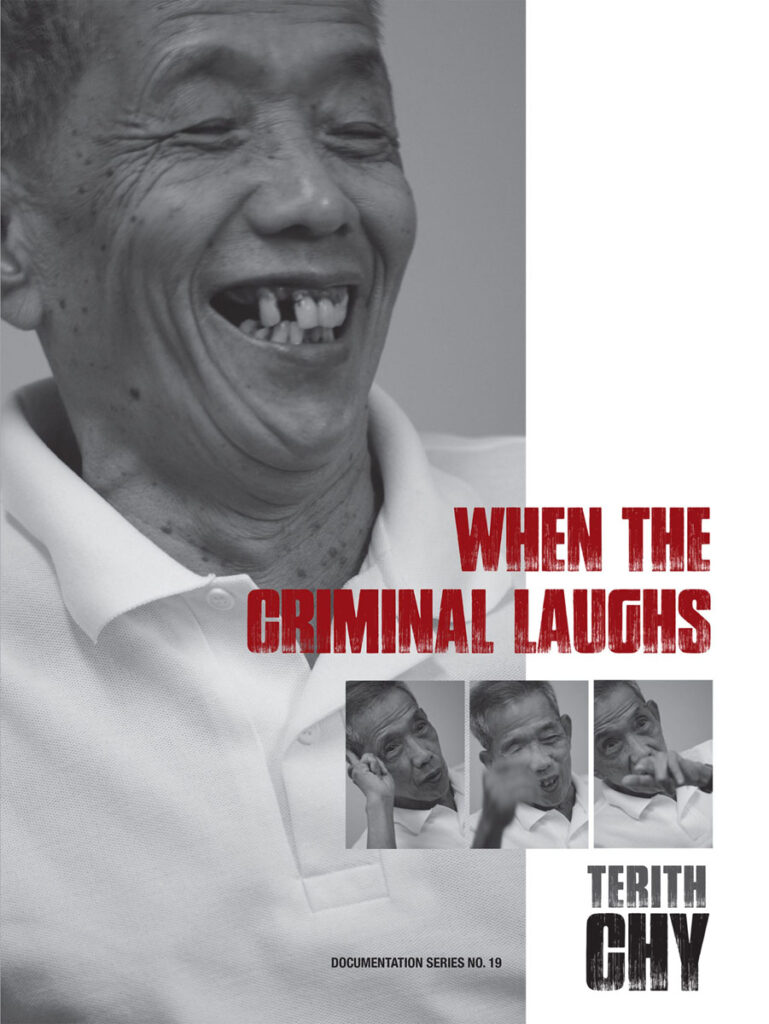
This study of the trial of the Cambodian mass murderer Duch provides the first micro-level analysis of the personality of the defendant, victim interaction, trial structure alongside the wider history and culture of both Cambodia and war crimes trials. As such it provides a unique insight into the relationship between concepts of evil, the psychology […]
SURVIVOR: The triumph of an ordinary man in the Khmer Rouge Genocide CHUM MEY with Documentation Center of Cambodia, Translation by Sim Sorya and Kimsroy Sokvisal (2012)
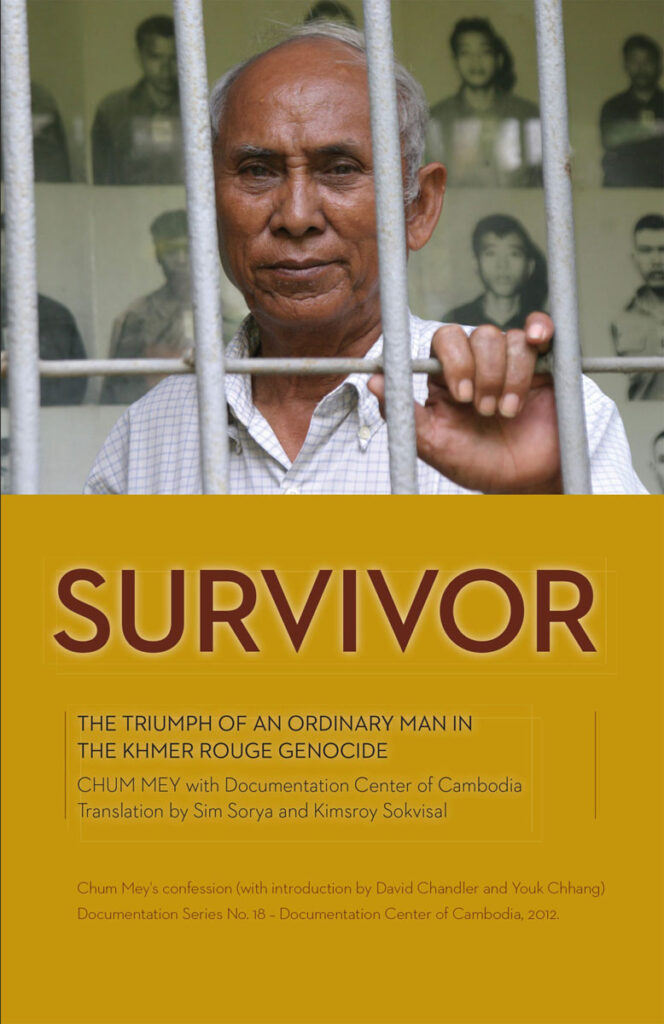
“Translation by Sim Sorya and Kimsroy Sokvisal” Chum Mey’s confession (with introduction by David Chandler and Youk Chhang) Cover photo by Mariko Takayasu Chum Mey personifies the tormented history of his country, surviving gunfights and rocket attacks during a civil war, losing his wife and four children during the brutal Khmer Rouge regime, and dragged […]
THE KHMER ROUGE LEADER: Getting Away with Genocide? – Helen Jarvis and Tom Fawthrop Translated by Chy Terith with Chum Charya (2011)
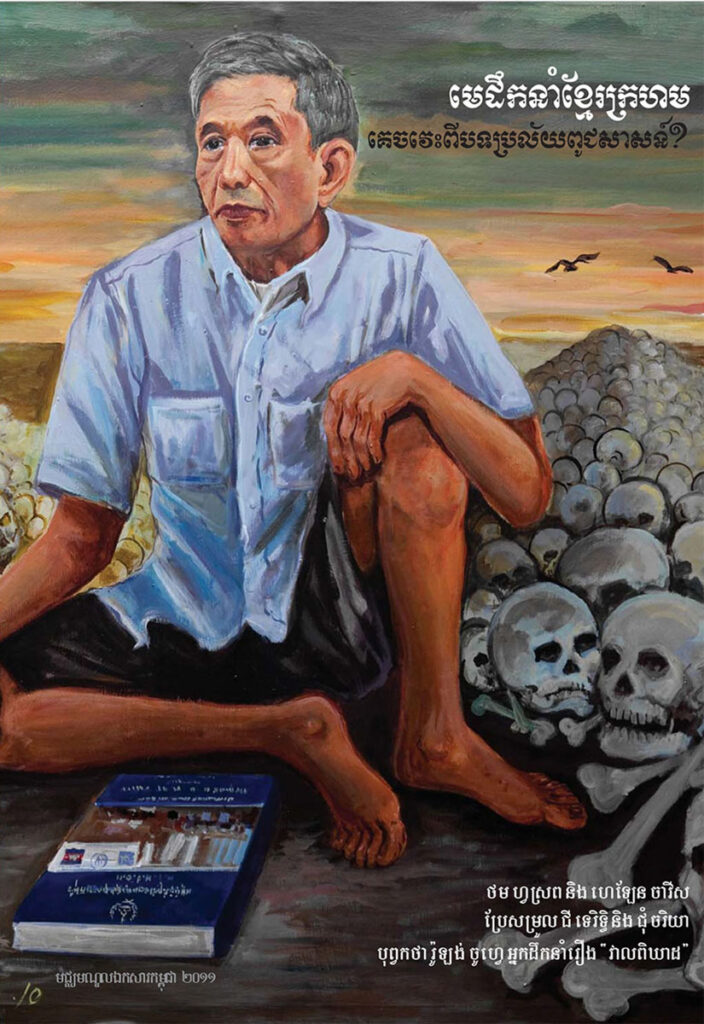
Twenty-five years after the overthrow of the Pol Pot regime, not one Khmer Rouge leader has stood in court to answer for their terrible crimes. Tom Fawthrop and Helen Jarvis show how governments that often speak the language of human rights shielded Pol Pot and his lieutenants from prosecution during the 1980s. After Vietnam ousted […]
THE HIJAB OF CAMBODIA: Memories of Cham Muslim Women after the Khmer Rouge – So Farina (2011)
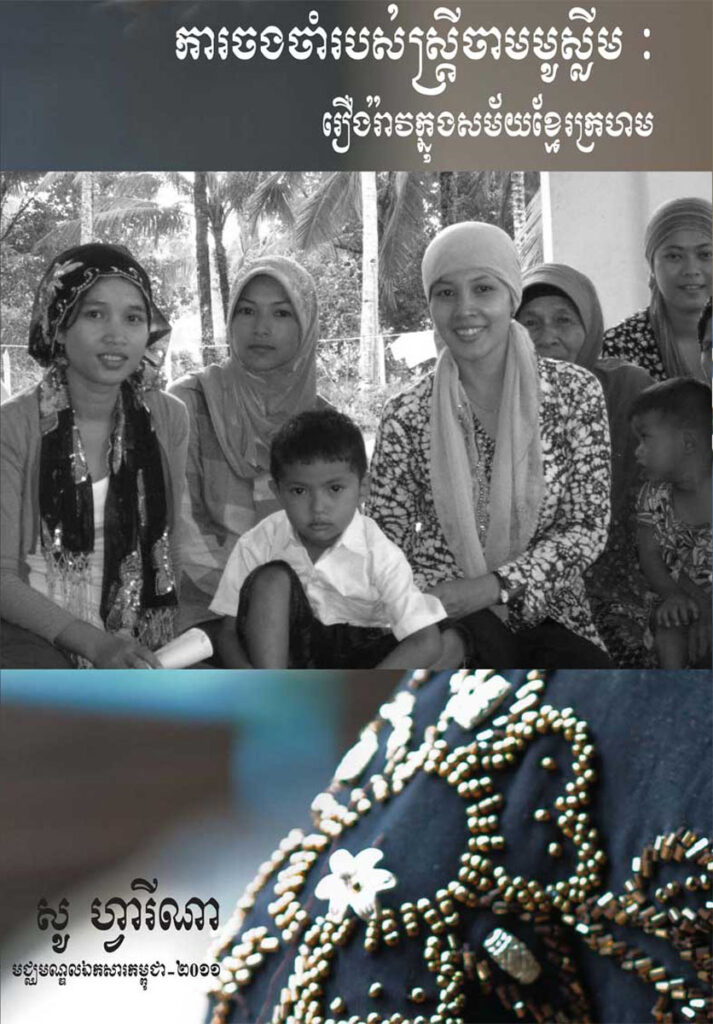
This book examines Cham Muslim women’s experiences under the Khmer Rouge regime through the complexities of memory and narrative and uncovers compelling stories of survival and resistance. Khmer Rouge genocidal policies ruptured ethnic and religious identities and resulted in the disproportionate death of the Cham group. Guided by their desire to preserve their families and […]
CAMBODIA THE CHAM IDENTITIES (2011)
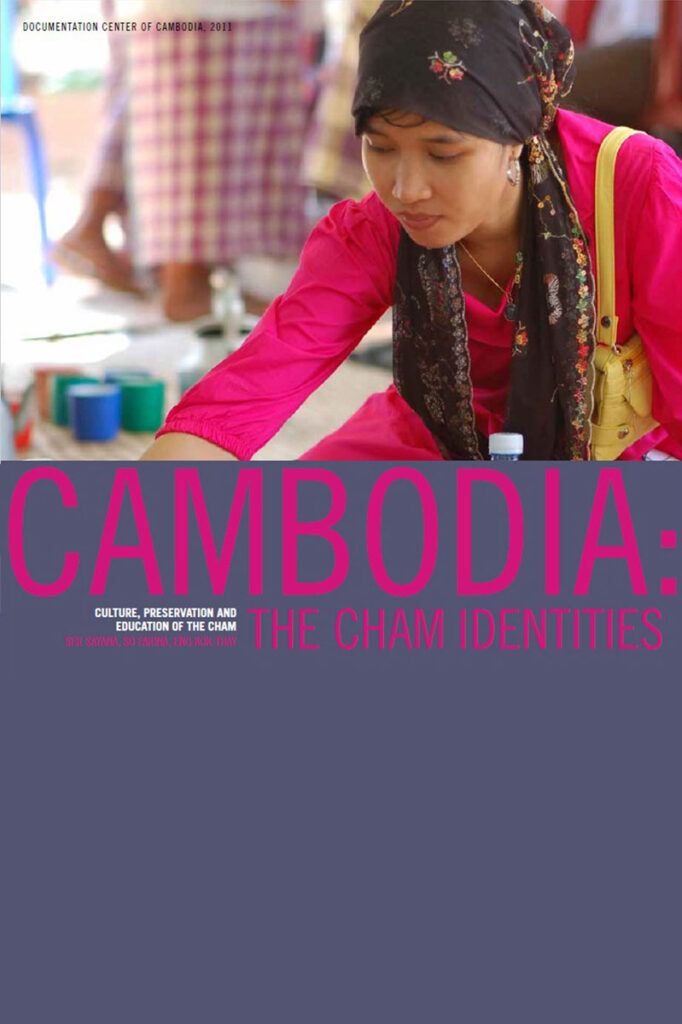
Svay Khleang is a typical Cham village on the bank of the Mekong River, in Svay Khleang commune, Krauch Chhmar district, Kampong Cham province. Historically, it was the center of Cham Muslim scholarship and learning in Cambodia. During the Khmer Rouge (KR), it was the site of one of the largest Cham uprisings against the […]
CAMBODIA’S HIDDEN SCARES: Trauma Psychology in the Wake of the Khmer Rouge, Edited by Beth Van Schaack, Daryn Reicherter & Youk Chhang Managing Editor: Autumn Talbot (2011)
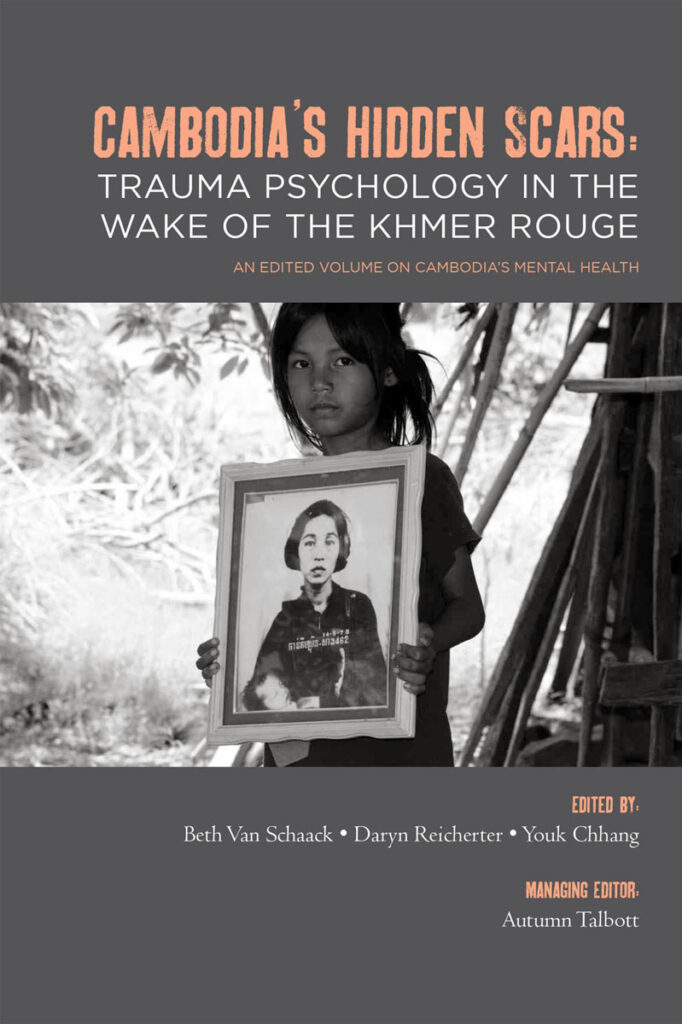
The Khmer Rouge Standing Committee aimed to ensure compliance and eliminate dissent by oppressing the people through psychological dominance. The defilement of Khmer religion, Khmer art, Khmer familiar relations, and the Khmer social class structure undermined deeply-held societal assumptions. The Khmer Rouge also destabilized the mass psychology that was secure in those realities. Cambodia’s psychology […]
THE HIJAB OF CAMBODIA: Memories of Cham Muslim Women after the Khmer Rouge, So Farina (2011)
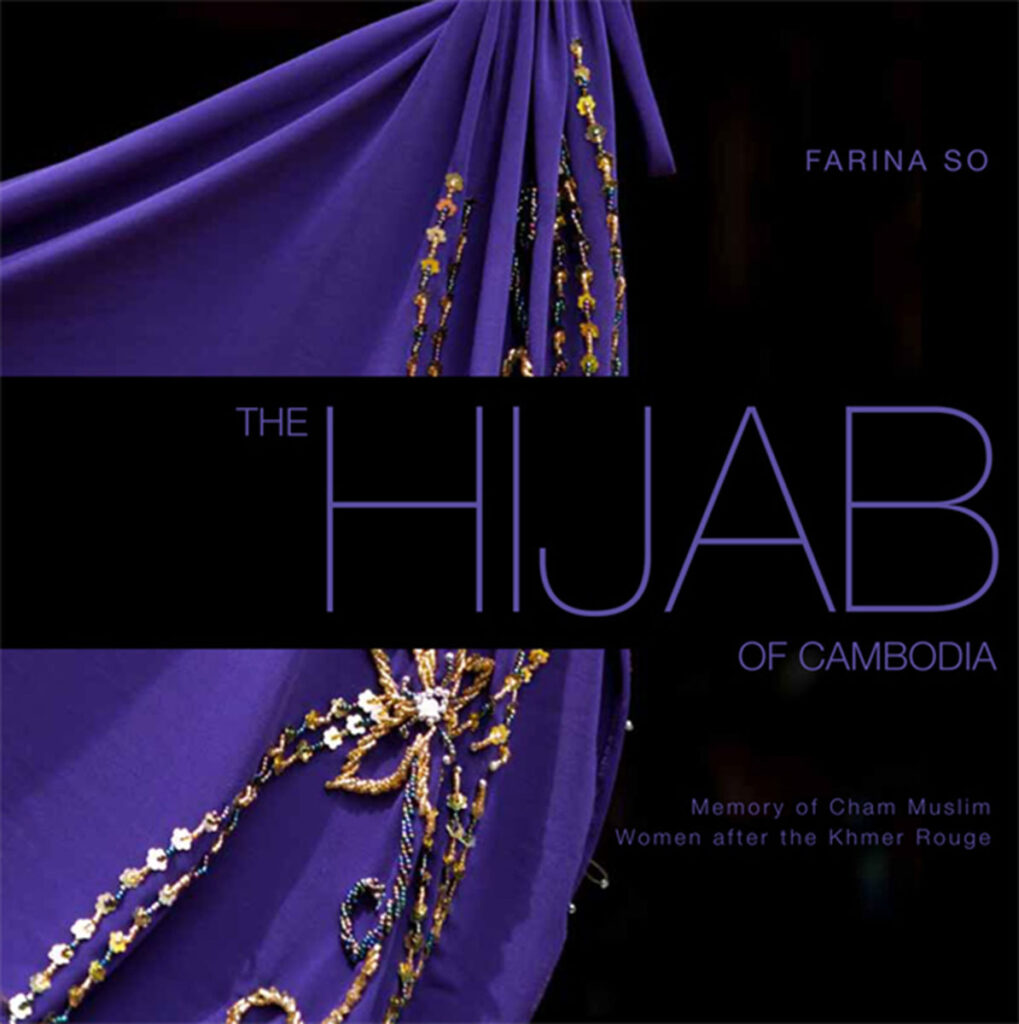
This book examines Cham Muslim women’s experiences under the Khmer Rouge regime through the complexities of memory and narrative and uncovers compelling stories of survival and resistance. Khmer Rouge genocidal policies ruptured ethnic and religious identities and resulted in the disproportionate death of the Cham group. Guided by their desire to preserve their families and […]
THE TEACHER GUIDE BOOK: The Teaching of “A History of Democratic Kampuchea (1975-1979)” – Chea Phala, Ed.D, & Christopher Dearing, Esq Translated by Pheng Pong-Rasy, Dy Khamboly (2010)
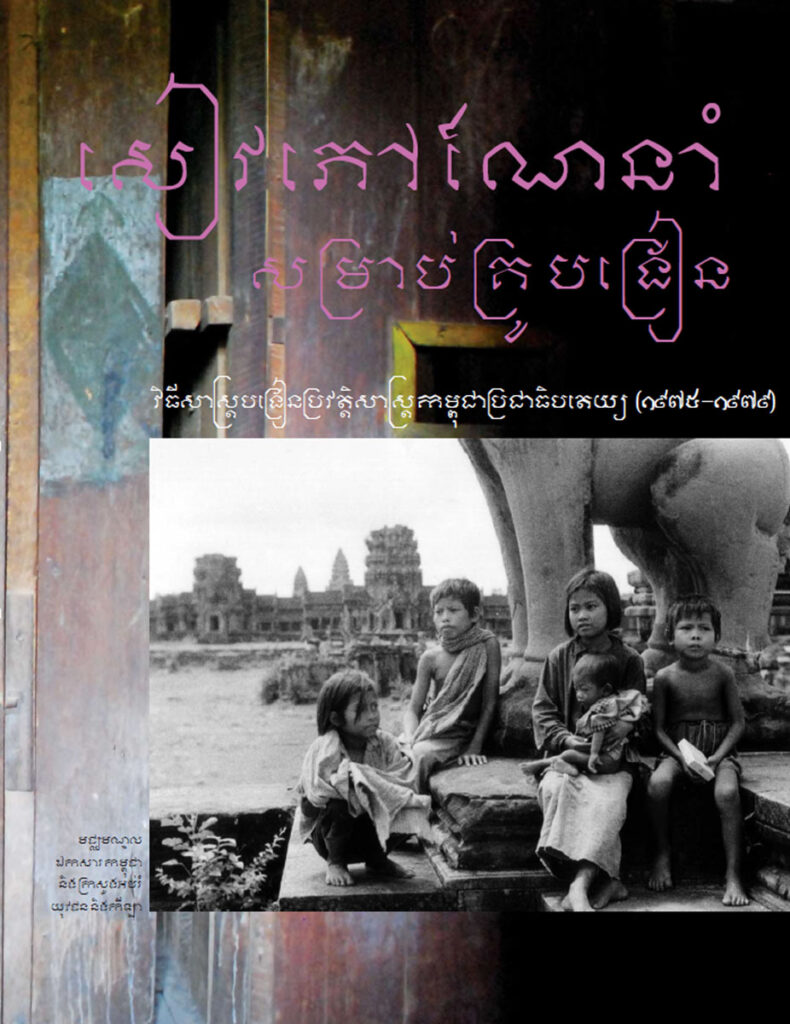
This guidebook would not have been possible without the hard work of countless individuals, some of whom have been instrumental to its success. I would like to thank H.E. Mr. Im Sethy for both his commitment to genocide education for Cambodia’s children and his commitment to justice for Khmer Rouge victims. I would also like […]
BOU MENG: A SURVIVOR FROM KHMER ROUGE PRISON S-21, Justice for the Future, Not Just for the Victims, Huy Vannak (2010)
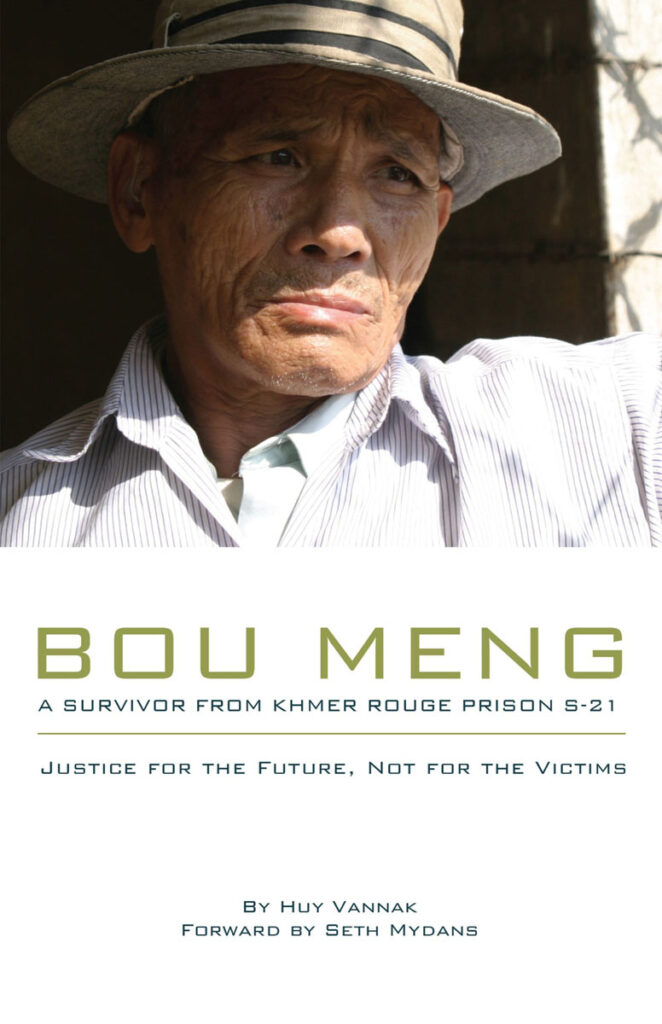
Nearly 30 years after the fall of the brutal Khmer Rouge regime, a survivor of its ruthless torture machine emerges from history to announce: “I am still alive.” The Khmer Rouge imprisoned and tortured 14,000 Cambodians at its notorious Toul Sleng Prison, also known as “S-21.” Imprisonment at S-21 was a certain death sentence–only a […]
ON TRIAL: The Khmer Rouge Accountability Process, Edited by John D. Ciorciari and and Anne Heindel Foreword by Youk Chhang (2009)
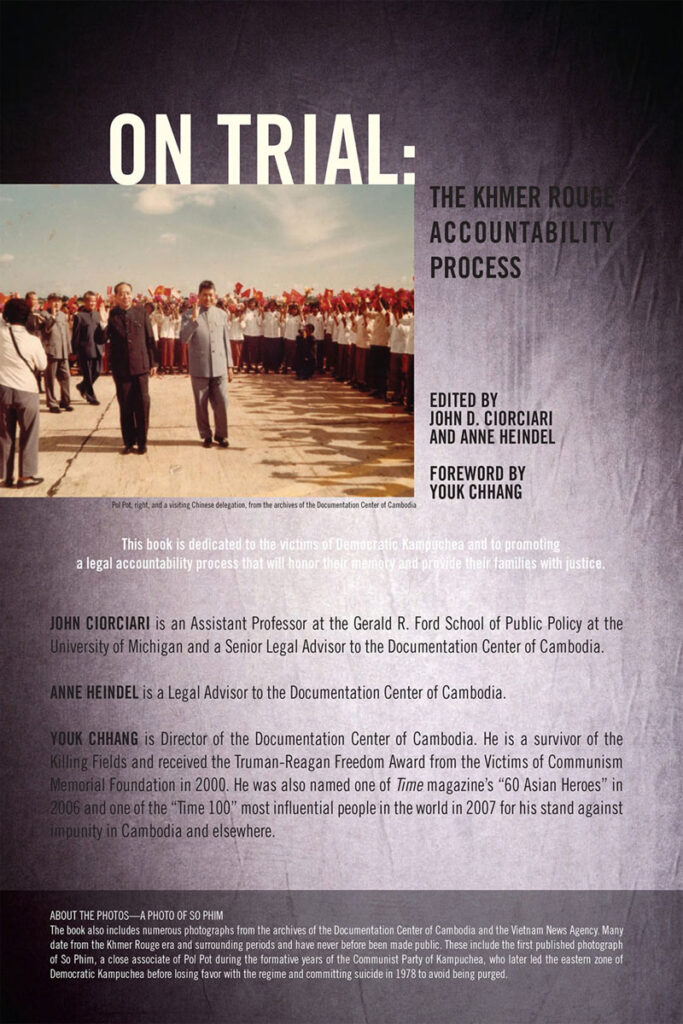
This book is dedicated to the victims of Democratic Kampuchea and to promoting a legal accountability process that will honor their memories and provide their families with justice. John Ciorciari is an Assistant Professor at the Gerald R. Ford School of Public Policy at the University of Michigan and a Senior Legal Advisor to the Documentation […]
